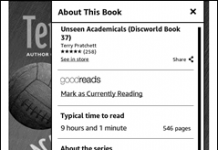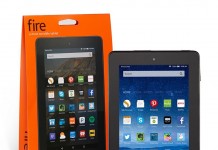In the past week, the eBooks in libraries topic grew even “hotter” when OverDrive and Amazon.com announced that their eBook lending partnership was going live for all OverDrive partner libraries.
When the announcement was made, I posted about a few concerns I had with the program including:
- Supply vs. Demand
My experience has been long wait times for most of the books I want to read. I’ve heard this from others who use different OverDrive collections. Will libraries be able to keep up with even greater demand? Can they afford to buy more copies? Can we meet the needs of users who want it NOW, not in a week or three weeks? Do they understand how their library acquires these eBooks? - Expectations/Perceptions of the Library
When the announcement was made last spring that the OverDrive/Kindle collaboration was coming, it was not made clear that every book that Amazon sells or the library has in its collection would not be available for download. Could disappointing experience(s) with a high visibility service like this lead to Increased discussion on the topic of libraries not being all that useful these days? Do users understand that purchasing eBooks from OverDrive is similar to purchasing print?
Questions
Here are a couple of the questions I asked OverDrive last week, with a few more that have come to mind since then.
- Is Amazon collecting download information?
- Is Amazon saving library download info permanently?
- If not, how long will they keep it? Is there a retention policy?
- Can you provide any info about privacy as it relates to OverDrive/Amazon?
- Will the library books you borrow be used by Amazon to provide recommendations of books for you to purchase?
- Is there a link to scrub all of your personal “library” data from Amazon.com’s servers with a single click?
- Do OverDrive and Amazon.com have any suggestions about how to make the entire process clearer to users?
- How would they respond to the issue that, since the service is being marketed by libraries, users might incorrectly think library privacy policies may still apply?
I did hear back from OverDrive after sharing my questions with them, but instead of getting answers I was told to contact the Amazon.com Media Hotline.
I have left two messages with contact info on the Amazon.com hotline and have not heard back as of Tuesday morning.
Some of What I’ve Learned in the Past Few Days
I’ve been using the service for the past few days and here are a few things I’ve noticed.
1. After you select a book from OverDrive, you’re taken directly to an Amazon.com page to retrieve the item. The first time you do this you need to enter your library card number.
2. I’ve checked the Manage Your Kindle Web page and have yet to find a link to “disconnect” my library card number from my Amazon.com account.
- If you have access to OverDrive from more than one library, how do you enter another card number? Do you need to create a new Amazon account?
4. I called a couple of large public libraries over the weekend and was not provided with any info concerning privacy issues relative to this new service. I realize the service is new but, again, knowing library users (and librarians) like we do, information on this should be known by or at least readily accessible to staff.
5. The Public Library Books for Kindle web page on the Amazon.com has no info about privacy as it relates to downloads of library materials sent via OverDrive.
6. You can only discover and add items to your cart from your library’s OverDrive page. This makes sense but at the same time some library promo might be helpful.
- Example: If you’re browsing Amazon’s Kindle store, there is no information about a specific book possibly being available for loan to you via your local library/OverDrive, — even if your library has the title and it’s available to download at that moment.
7. To return a book (if you want to return it early), you have to do it from the Amazon.com “Manage Your Kindle” page.
8. If you want to download the same book again at a different time, you can’t do it from the Amazon.com Kindle Management page. You are provided with a link to purchase.
9. If a library user decides to purchase after borrowing from a library, does the library get an affiliates commission?
10. After you return a book, it appears that it remains listed in your Amazon library unless you click again and delete it from your library. Remember, if you make notes in the eBook, Amazon.com automatically retains this information, so they do need to know (and store) what you borrowed in the past.
Privacy, the Library, and Disclosure by All Involved
If there is one thing all libraries and librarians are proud of — and with very good reason — it’s a strong commitment to user privacy. Users appreciate this.
Once a user takes advantage of this new Kindle/Overdrive service, his or her library card number and eBook checkout history (if they’re using a Kindle) becomes part of Amazon’s database. Whether this is a good thing or something to be concerned about is up to the library and the individual user.
My main concern here is that we need to make all of this clear to our users. They browse for books from their libraries’ websites, but do they understand that in using the service they are sharing what they download with Amazon.com, whose privacy policy might not be to their liking?
Although users are downloading the actual eBook from Amazon.com, they’re searching for titles via their library’s website, not Amazon’s, and libraries are promoting the service. We need to make sure users are aware of what is or is not going on rather than instructing the user to contact Amazon.com with questions and concerns, as one library did to me the other day. WE should be doing the explaining.
My point is not whether this particular service is good or bad, but rather that we need to be providing clear and accessible disclosure and transparency with users for the service (and all other services) where an individual’s data leaves the library’s control. I think we’ve all seen what happens when a privacy issue suddenly comes to light, generating all manner of negative publicity. We share books, serials, audio, video, and other information. And we must be sharing as clearly as possible what happens to a user’s data — and let our users know when any service may compromise the level of privacy they’ve come to expect and appreciate from their library.
Finally, while I’m writing about Amazon.com today, issues with any third parties having access to library user data need to be discussed not only in the library community but also directly with users.

































I’m thinking that your first point may vary depending on how the individual library sets up OverDrive. For my library, I select the book, then select my library (my OverDrive is for a consortium), then enter my library card number, and THEN I’m taken to Amazon, where I have to enter my Amazon password. While it’s not impossible that Amazon is getting my card number, it seems doubtful in this scenerio.
I have to agree with Riva. I’ve been testing out the service with our library’s iPad and the Kindle app, and I never had to enter a library card number on the Amazon site. You enter the card number and PIN (in our case) to log in to OverDrive and initiate the checkout. Then you go to the Amazon site to enter your Amazon login and complete the download process.
“If you have access to OverDrive from more than one library, how do you enter another card number? Do you need to create a new Amazon account?” I have downloaded books charged to different library cards and the same Amazon account.
I don’t think any public library will ever be able to provide instantaneous access to all available resources. We have issues like copyright to consider after all. Even when it comes to e-books, libraries purchase a certain number of licenses for each title in question. I guarantee however that the number of people wanting to read a book like The Help, to give a timely example, is going to exceed the number of licenses that have been purchased. That’s just the way it is. Severely shortened checkout periods do little to remedy the situation. The library system with which I am employed tried to go to 2-week checkouts for new releases. So many people complained about the shortened loan period that the policy was revoked within a month or two.
My point is that public libraries will never be able to provide what for-profit organizations can, but their collective mission means they will also deliver what conglomerates like Amazon can’t. Our goals are things like increasing literacy and community involvement and teaching users how to manipulate online resources. As you point out,it falls on us to inform our users. Amazon isn’t going to do it. They have no motivation to do it. It could actually be perceived as detrimental for Amazon to make some things more clear.
Just the other day, I helped an older gentleman to set his privacy settings on his newly-created Facebook account. If I wouldn’t have brought up the issue of privacy, he probably would not have asked. He was asking OTHER questions about Facebook, since he’d just created the account a few minutes before approaching the desk.
Some people don’t think about these things, and I think it’s very important that we encourage them to change their mindsets, or at the very least, give them the information they need to make intelligent decisions. Unfortunately, we live in a very connected world. We need to be careful about what we put out there. I think many of our patrons (and perhaps a fair number among our ranks) operate under the assumptions that information is protected more than it is.
It’s almost Orwellian in a certain sense. I’m thinking of the tv screens that can’t be turned off and the constant surveillance that is accepted as a necessary part of life. I hate to suggest that our default should be moved from “my information is private unless I make a conscious decision to make it public” to “My information might very well be public, so I need to be careful about what I put out there” but there’s a certain truth to that.
The problem is when you don’t have control over information that is generated by your actions (i.e. entering your library card number in order to download a book to your Kindle).
We had been hearing from Overdrive that a Kindle service would be offered “by the end of the year”. Suddenly, with no prior notice, the service appeared. No chance for the staff to become familiar, or learn anything about how the service is provided, nor to learn that the service would route our patrons directly to links to purchasing Amazon Kindles, and to purchasing Amazon materials.
Unacceptable! Unless of course, Amazon is willing to give us a cut of the sales. And of course, they won’t be.
Overdrive may have had their feet held to the fire on this one, or at least felt that way out of desperation to provide service to Kindle owners. But honestly, my gut tells me that they kept things quiet until launch because of the criticism they’ll surely be getting regarding public library subscribers being seen as schills for Amazon.